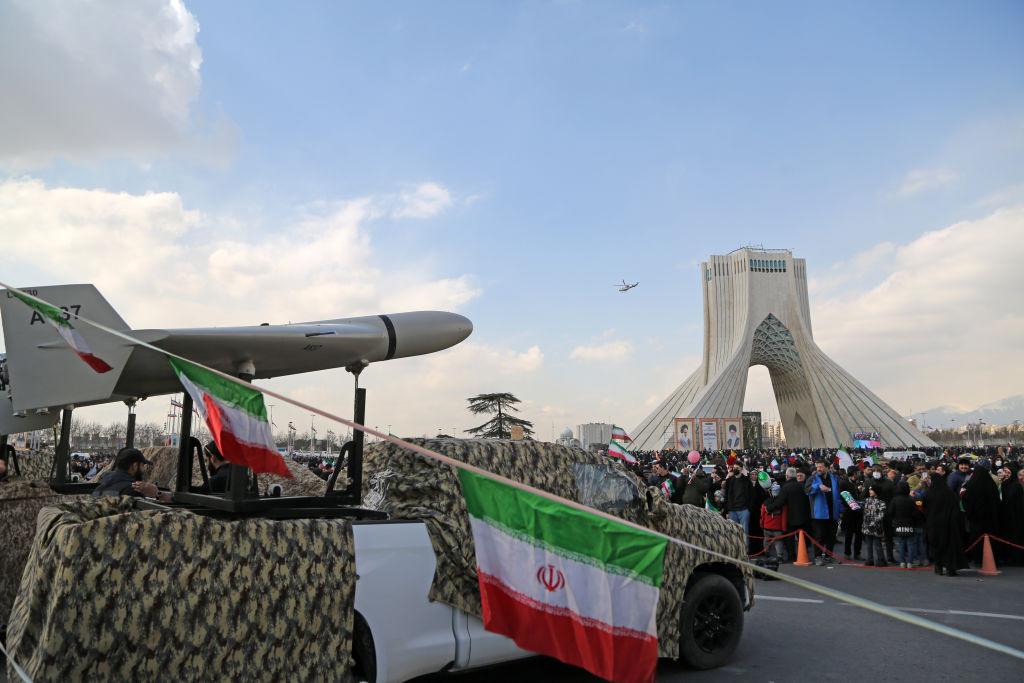
The government’s sudden decision to refer to the West Bank, including East Jerusalem, and Gaza as ‘occupied Palestinian territories’ is in marked contrast to its relative silence on Iran and other issues in the Middle East.
The decision follows the government’s refusal to sign on to a quite moderate June 2022 US-led statement, endorsed by 22 other countries including the UK, Germany and Canada, criticising the UN Human Rights Council’s plan for a commission of inquiry on the occupied Palestinian territory, including East Jerusalem, and Israel. The statement noted that this was a ‘further demonstration of long-standing, disproportionate attention given to Israel’ at the UN. However, at the same time, Australia did deliver a statement at the council expressing fundamental concerns about the commission of inquiry. It reiterated those concerns at the council’s June 2023 session.
In October 2022, Labor reversed the previous government’s position recognising West Jerusalem as Israel’s capital. Foreign Minister Penny Wong told the parliament: ‘Today the Government has reaffirmed Australia’s previous and longstanding position that Jerusalem is a final status issue that should be resolved as part of any peace negotiations between Israel and the Palestinian people.’ Wong also said: ‘We’ve rebalanced Australia’s positions in international forums while opposing anti-Israel bias in the UN.’
This has been contradicted by the government’s recognition of East Jerusalem, along with the West Bank, as ‘occupied Palestinian territory’.
Gaza, meanwhile, has not had a physical Israeli presence since 2005 and it has been ruled by Hamas, which has been regarded by Australia as a terrorist entity for financial sanctions since 2001 as part of implementing UN Security Council resolution 1373. It should therefore not be considered ‘occupied’. Moreover, none of the territories in question have ever been part of any Palestinian state, so referring to them as occupied Palestinian territory is objectively incorrect.
Apart from its criticism of Israel, the government says little about other issues and countries in the Middle East. There’s the slight exception of Iran, but even there Australia’s response falls short.
Australia has long maintained autonomous sanctions on Iran and has upheld multilateral sanctions. Wong used Australia’s Magnitsky powers to impose thematic (human rights) sanctions against Iranian individuals and entities—long after the US, Canada, the UK and EU had begun doing so—in December 2022, in February this year and again in March.
It also took Australia substantially longer than most of its allies to condemn Iran or impose sanctions against it for supplying drones and other weapons to Russia for its attack on Ukraine.
Australia applied its first Russia-related sanctions against Iran last December. It then lagged on further sanctions again until a February report by the Senate’s Foreign Affairs, Defence and Trade References Committee into the human rights implications of recent violence in Iran was due. The report said it was unfortunate that Australia lagged behind other nations in responding with action, and the committee urged the government to be ‘unequivocal in its response to violence and human rights abuses in Iran’. In March, the government imposed a third package of sanctions on Iran for human rights abuses and its support for Russia.
Since then, the UK and EU have developed new sanctions regimes targeting Iran and, alongside Canada and the US, have continued to impose progressively heavier sanctions on Iranian individuals and entities nearly every month.
Australia’s government has not criticised any action by Iran since the foreign minister condemned the 19 May execution of Majid Kazemi, Saeed Yaqoubi and Saleh Mirhashemi. Iran has reportedly hanged at least 423 people since the start of 2023 and its ‘morality police’ have returned to arresting women for not wearing their hijabs ‘properly’.
Australia summoned or spoke to the Iranian chargé d’affaires by phone 10 times between late September 2022 and early January 2023. It may have taken similar action since, but it’s unclear why it has taken such a low-key approach and not gone along with our allies’ sanctions and condemnations as Iran has doubled down on its human rights abuses, regional destabilisation, foreign interference and support for Russia.
The government has had little to say about events in the Middle East outside of Israel and Iran even though 2022–23 has seen overwhelming regional shifts. In addition, an Australian citizen, Robert Pether, remains unjustly jailed in Iraq, something that ought to warrant a statement.
Meanwhile, pressure has been maintained on Israel despite the Palestinian leadership’s longstanding refusal to accept two-state peace offers or, in recent years, even to engage in negotiations on the subject.
Instead of focusing solely on Israeli–Palestinian issues, Australian pressure should also be directed towards the Iranian regime over its piracy, terrorism, nuclear program, regional destabilisation, weapons proliferation and material support for Russia.

